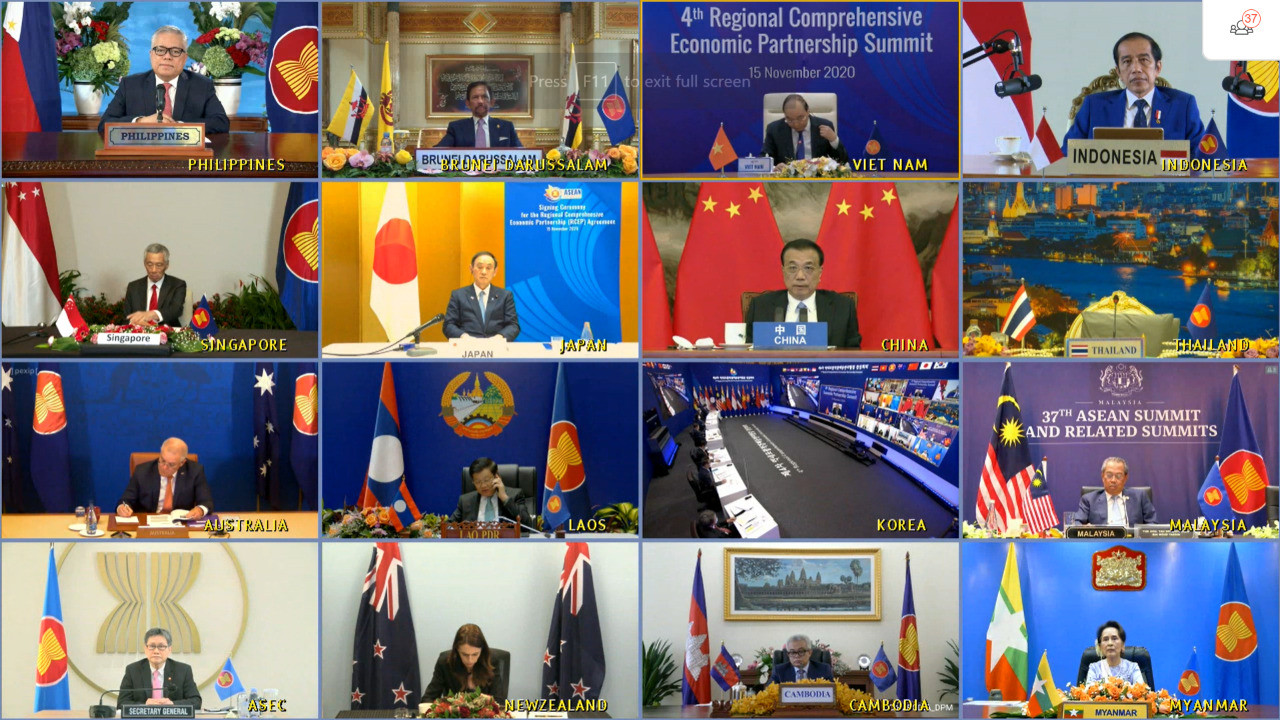Popular Reads
Top Results
Can't find what you're looking for?
View all search resultsPopular Reads
Top Results
Can't find what you're looking for?
View all search resultsGovt to help businesses benefit from RCEP with new trade regulation
Change text size
Gift Premium Articles
to Anyone
T
he government issued a new rule concerning provisions of origin of goods and provisions for issuing documents of origin for goods exported from Indonesia, as a follow-up to the recently ratified Regional Comprehensive Economic Partnership (RCEP) agreement.
Stipulated through Trade Ministerial Regulation Number 56/2022, the new measure will be effectively enforced starting on Jan. 2, 2023, aiming to help business actors take advantage of the implementation of RCEP, which is deemed the world’s largest trading block.
Trade Minister Zulkifli Hasan explained that the new rule is basically designed to regulate procedures for obtaining Certificate of Origins for goods that are exported from Indonesia, as well as other provisions regarding the origin-of-goods requirement.
"This regulation will provide convenience for business actors in carrying out RCEP implementation, in order to increase the smooth flow of export goods under the RCEP scheme," he said as quoted from a Trade Ministry press release, published on Thursday.
According to the ministerial regulation, businesses can choose between two types of documents to claim “preferential rates”, namely a Certificate of Origin (SKA) or a Declaration of Origin (DAB), which can be issued independently.
Zulkifli said this is in line with a facilitative-trade commitment in RCEP. Through both SKA and DAB, he added, exporters will benefit from preferential tariffs from other RCEP country members.
"The regulation was issued so that businesses can boost trade and national-export performance to ASEAN countries and ASEAN partner countries through the use of certificates of origin," said the minister.
Indonesia has ratified RCEP through Law Number 24/2022 concerning ratification of the Regional Comprehensive Economic Partnership agreement on Sep. 27 this year.
"The RCEP agreement is expected to be able to encourage increased competitiveness and global-production networks and promote regional supply chains through increasing export market access for goods and services, reducing or removing trade barriers as well as increasing technology transfer," said Zulkifli.
The Ministry’s Director General of Foreign Trade Budi Santoso explained that the RCEP agreement had a number of advantages compared to other trade agreements that Indonesia already has.
One of them is that RCEP agreement simplifies and provides certainty of trade rules for its member countries.
"RCEP also introduces regional-value content, which will further facilitate the establishment of a regional-production hub. RCEP can be an opportunity for Indonesia to increase its integration in the global supply chain, especially in the region," he noted.
The RCEP agreement, which was Indonesia's initiative at the ASEAN Chair in 2011, is a consolidation of 10 ASEAN member countries and five FTA partner countries, namely Australia, Japan, South Korea, New Zealand and China.
RCEP is the world's-largest trade agreement outside the World Trade Organization (WTO) in terms of world coverage for total GDP (30.2 percent), foreign direct investment (29.8 percent), population (29.6 percent) and trade (27.4 percent), which is slightly below the EU-27 at 29.8 percent.











